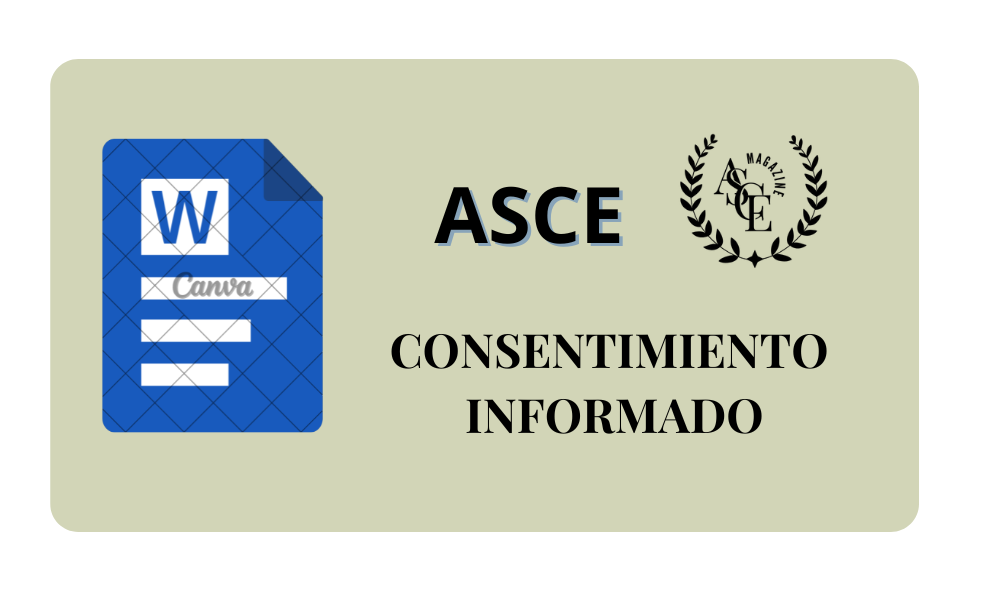¿Cómo influye la confianza del usuario en la adopción de sistemas de información impulsados por IA? Un enfoque de modelado de ecuaciones estructurales
DOI:
https://doi.org/10.70577/ASCE/395.413/2025Palabras clave:
Confianza del Usuario; Utilidad Percibida; Adopción de IA; Modelo SEM; Transparencia Algorítmica.Resumen
Este estudio emplea un Modelo de Ecuaciones Estructurales (SEM) para analizar los factores que influyen en la adopción de sistemas de IA, destacando el papel central de la confianza del usuario (β = 0.49) y la utilidad percibida (β = 0.089) como predictores clave. Los resultados validan el Technology Acceptance Model (TAM), pero amplían su marco al demostrar que la confianza actúa como mediador crítico, especialmente en contextos de incertidumbre tecnológica. La seguridad percibida mostró un efecto moderado (β = 0.23), relevante en aplicaciones sensibles, mientras que la usabilidad tuvo un impacto mínimo (β = 0.04), sugiriendo que los usuarios priorizan la fiabilidad sobre la facilidad de uso. Las variables organizacionales (ej. tamaño) tuvieron un efecto marginal, enfatizando la predominancia de factores individuales. Los hallazgos subrayan la necesidad de diseños centrados en transparencia y explicabilidad (XAI) para fortalecer la confianza y facilitar la adopción.
Descargas
Citas
Afroogh, S., Akbari, A., Malone, E., Kargar, M., & Alambeigi, H. (2024). Trust in AI: Progress, challenges, and future directions. Humanities and Social Sciences Communications, 11(1), 1568. https://doi.org/10.1057/s41599-024-04044-8 DOI: https://doi.org/10.1057/s41599-024-04044-8
Ali, S., Abuhmed, T., El-Sappagh, S., Muhammad, K., Alonso-Moral, J. M., Confalonieri, R., Guidotti, R., Del Ser, J., Díaz-Rodríguez, N., & Herrera, F. (2023). Explainable Artificial Intelligence (Xai): What we know and what is left to attain Trustworthy Artificial Intelligence. Information Fusion, 99, 101805. https://doi.org/10.1016/j.inffus.2023.101805 DOI: https://doi.org/10.1016/j.inffus.2023.101805
Bach, T. A., Khan, A., Hallock, H., Beltrão, G., & Sousa, S. (2024). A systematic literature review of user trust in ai-enabled systems: An hci perspective. International Journal of Human–Computer Interaction, 40(5), 1251–1266. https://doi.org/10.1080/10447318.2022.2138826 DOI: https://doi.org/10.1080/10447318.2022.2138826
Chen, Y., Prentice, C., Weaven, S., & Hisao, A. (2022). The influence of customer trust and artificial intelligence on customer engagement and loyalty – The case of the home-sharing industry. Frontiers in Psychology, 13, 912339. https://doi.org/10.3389/fpsyg.2022.912339 DOI: https://doi.org/10.3389/fpsyg.2022.912339
Cheong, B. C. (2024). Transparency and accountability in AI systems: Safeguarding wellbeing in the age of algorithmic decision-making. Frontiers in Human Dynamics, 6, 1421273. https://doi.org/10.3389/fhumd.2024.1421273 DOI: https://doi.org/10.3389/fhumd.2024.1421273
Contextualizing end-user needs: How to measure the trustworthiness of an ai system. (2023, July 17). https://insights.sei.cmu.edu/blog/contextualizing-end-user-needs-how-to-measure-the-trustworthiness-of-an-ai-system/
Ding, Y., & Najaf, M. (2024). Interactivity, humanness, and trust: A psychological approach to AI chatbot adoption in e-commerce. BMC Psychology, 12(1), 595. https://doi.org/10.1186/s40359-024-02083-z DOI: https://doi.org/10.1186/s40359-024-02083-z
Gerlich, M. (2024). Exploring motivators for trust in the dichotomy of human—Ai trust dynamics. Social Sciences, 13(5), 251. https://doi.org/10.3390/socsci13050251 DOI: https://doi.org/10.3390/socsci13050251
Kaneko, S., & Yamada, S. (2024). Predicting trust dynamics with dynamic sem in human-ai cooperation. arXiv. https://doi.org/10.48550/ARXIV.2407.01752
Kumar, S., & Bargavi, Dr. S. K. M. (2024). Trust’s significance in human-ai communication and decision-making. INTERANTIONAL JOURNAL OF SCIENTIFIC RESEARCH IN ENGINEERING AND MANAGEMENT, 08(02), 1–10. https://doi.org/10.55041/IJSREM28468 DOI: https://doi.org/10.55041/IJSREM28468
Li, Y., Wu, B., Huang, Y., & Luan, S. (2024). Developing trustworthy artificial intelligence: Insights from research on interpersonal, human-automation, and human-AI trust. Frontiers in Psychology, 15, 1382693. https://doi.org/10.3389/fpsyg.2024.1382693 DOI: https://doi.org/10.3389/fpsyg.2024.1382693
Mahdavi, M., & Frings, D. (2024). Trust in AI applications and intention to use them in cardiac care among cardiologists in the UK: A Structural Equation Modeling Approach. https://doi.org/10.21203/rs.3.rs-4114716/v1 DOI: https://doi.org/10.21203/rs.3.rs-4114716/v1
Marmolejo-Ramos, F., Marrone, R., Korolkiewicz, M., Gabriel, F., Siemens, G., Joksimovic, S., Yamada, Y., Mori, Y., Rahwan, T., Sahakyan, M., Sonna, B., Meirmanov, A., Bolatov, A., Som, B., Ndukaihe, I., Arinze, N. C., Kundrát, J., Skanderová, L., Ngo, V.-G., … Tejada, J. (2025). Factors influencing trust in algorithmic decision-making: An indirect scenario-based experiment. Frontiers in Artificial Intelligence, 7, 1465605. https://doi.org/10.3389/frai.2024.1465605 DOI: https://doi.org/10.3389/frai.2024.1465605
Mehrotra, S., Centeio Jorge, C., Jonker, C. M., & Tielman, M. L. (2023). Building appropriate trust in ai: The significance of integrity-centered explanations. In P. Lukowicz, S. Mayer, J. Koch, J. Shawe-Taylor, & I. Tiddi (Eds.), Frontiers in Artificial Intelligence and Applications. IOS Press. https://doi.org/10.3233/FAIA230121 DOI: https://doi.org/10.3233/FAIA230121
Oyekunle, D., Matthew, U. O., Preston, D., & Boohene, D. (2024). Trust beyond technology algorithms: A theoretical exploration of consumer trust and behavior in technological consumption and ai projects. Journal of Computer and Communications, 12(06), 72–102. https://doi.org/10.4236/jcc.2024.126006 DOI: https://doi.org/10.4236/jcc.2024.126006
Pasipamire, N., & Muroyiwa, A. (2024). Navigating algorithm bias in AI: Ensuring fairness and trust in Africa. Frontiers in Research Metrics and Analytics, 9, 1486600. https://doi.org/10.3389/frma.2024.1486600 DOI: https://doi.org/10.3389/frma.2024.1486600
Pathak, A., & Bansal, V. (2024). AI as decision aid or delegated agent: The effects of trust dimensions on the adoption of AI digital agents. Computers in Human Behavior: Artificial Humans, 2(2), 100094. https://doi.org/10.1016/j.chbah.2024.100094 DOI: https://doi.org/10.1016/j.chbah.2024.100094
Touameur, O., & Harrag, F. (2023). Advancing trust in ai algorithms: A state-of-the-art examination of non-knowledge aware and knowledge-aware aware approaches. 2023 2nd International Engineering Conference on Electrical, Energy, and Artificial Intelligence (EICEEAI), 1–6. https://doi.org/10.1109/EICEEAI60672.2023.10590431 DOI: https://doi.org/10.1109/EICEEAI60672.2023.10590431
Westover, J. (2024). Ai and trust in organizations. Human Capital Leadership Review, 13(3). https://doi.org/10.70175/hclreview.2020.13.3.7 DOI: https://doi.org/10.70175/hclreview.2020.13.3.7
Zhou, T., & Lu, H. (2025). The effect of trust on user adoption of AI-generated content. The Electronic Library, 43(1), 61–76. https://doi.org/10.1108/EL-08-2024-0244 DOI: https://doi.org/10.1108/EL-08-2024-0244
Descargas
Publicado
Cómo citar
Número
Sección
Licencia
Derechos de autor 2025 Oscar Danilo Gavilánez Alvarez, John Javier Cruz Garzón, Cristian Luis Inca Balseca

Esta obra está bajo una licencia internacional Creative Commons Atribución-NoComercial-SinDerivadas 4.0.






























